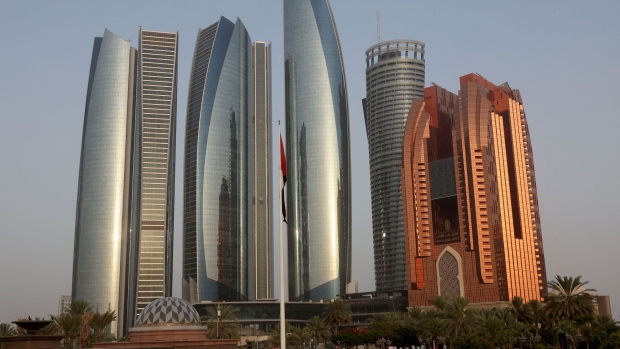Jul 3, 2024
Abu Dhabi’s Lunate Weighs Raising $5 Billion to Hunt for Deals
, Bloomberg News

(Bloomberg) -- Lunate, the year-old fund that’s quickly become a formidable investing force in the Middle East, is considering raising about $5 billion in financing that it could use for potential deals.
Lunate is considering leaning on both international and regional banks for subscription financing, according to people familiar with the matter. The debt would augment its existing $105 billion in assets under management, and give the firm more dry powder to do deals without having to hit up its backers for more cash.
The fund is still in talks with bankers about the financing and it may ultimately decide to forgo borrowing the funds, the people said, declining to be named as the information is private.
A representative for Lunate declined to comment.
Subscription finance facilities allow giants of investing to move more quickly on deals. Traditionally, these funds have to give their limited partners at least 10 days notice when they need to fund a capital call. With subscription finance facilities, though, funds can receive their borrowings with as little as one day’s notice.
The talks are the latest proof that Lunate is looking to be a key player in the Middle East investing scene. The fund was formed just last year and has already gone on a deal spree in recent months.
Earlier this year, Lunate agreed to buy a 40% stake in Adnoc’s oil pipeline network from BlackRock Inc. and KKR & Co. It also recently teamed up with Saudi Arabia’s Olayan Financing Company to buy a 49% stake in ICD Brookfield Place, the largest office tower in Dubai’s financial hub.
The fund has also reached out to some of the key owners in Abu Dhabi National Oil Co.’s gas pipeline unit to express interest in buying their stakes, Bloomberg News previously reported. That interest comes as Global Infrastructure Partners and Italy’s Snam SpA are considering offloading their holdings in the unit.
Lunate was set up by an arm of Sheikh Tahnoon bin Zayed Al Nahyan’s listed conglomerate International Holding Co. It has more than 160 employees and says it’s focused on investments across private equity, venture capital, private credit, real assets, public equities and public credit.
Interest in the private credit, private equity and venture capital industries has exploded in the Middle East as oil revenue has filled the coffers of local institutions in recent years. Gulf sovereign wealth funds and investment firms are pouring money into ever-larger deals for their portfolios despite elevated interest rates. Other investors, as well as banks themselves, are also keen to make more wagers.
New from Bloomberg: Get the Mideast Money newsletter, a weekly look at the intersection of wealth and power in the region.
©2024 Bloomberg L.P.





